Economic Precarity and Resiliency in Theatre
an American Psalm
Mid-June, 2018. I am en route to Philadelphia for the closing performances of the second stop of the National New Play Network (NNPN) rolling world premiere of my play Red Bike with Simpatico Theatre. Concurrent with the run, Simpatico’s Artistic Director Allison Heishman has taken the bold stance of producing readings of three of the plays from my American Psalm seven-play cycle of which Red Bike is the first. She has playfully titled the three-day reading event “Svich Fest.”
I have been working on the seven-play cycle at a feverish pace for the last year and a half, for the most part on my own and without any support beyond the emotional kind offered by a team of colleagues that have been following and embracing this specific writing journey of mine. So this is the first opportunity for me to bear witness to four of the plays—one in production and the other three in concert reading form—consecutively, and to get a sense of what, up until this trip, has been a purely imagined theatrical endeavor.
So much of what we do in the theatre demands extraordinary leaps of faith, and … so often we take these leaps for granted.
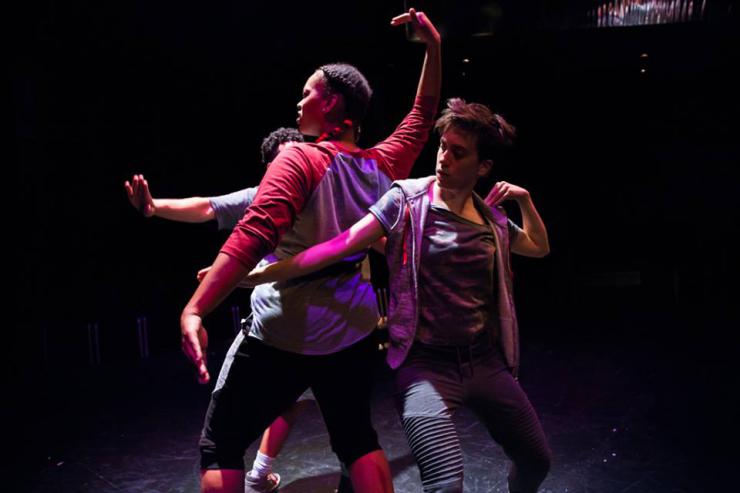
I am both nervous and thrilled at the prospect, and admiring as well of the fact that a company like Simpatico, which is basically being run, at this point anyway, by Allison Heishman’s chutzpah and zeal to stay afloat, has decided to take this amazing leap of faith on a dramatic project that is hot off the presses and has not been “road-tested” in any significant way. It makes me think about how so much of what we do in the theatre demands extraordinary leaps of faith, and how so often we take these leaps for granted. But I am also wondering how the reality of living in the precariat class makes these leaps even more precious.
Neither Simpatico Theatre or I are “of means,” in a fiscal sense. The agreement to not only produce Red Bike but also to tackle the casting and practical logistics of producing three readings is an enormous and beautiful “risk” in so-called “risk-averse” theatrical times. It’s an emotional commitment to the work, and the context around the work. It could have been easy to say, when I mentioned to Allison in early December 2017 that I was building a cycle of plays, “Ah, that’s nice!” But to move past the cheerleader phase and take even one next step with three more plays whilst another was in production, is something of which text-builder theatremakers like me dream.
* * *
I’ve been in this business long enough to know that this kind of emotional commitment to a writer’s vision is rare and hard come by, even at the level of readings. I also know that when both colleagues that have done the hand-shake deal are basically getting by gig to gig on something of a wing and a prayer, the ability to “risk” in this way means that everyone involved will in some way be sleep-deprived, working beyond their capacity, and pushed to the limit as they labor within an economy of little fiscal resources. Each move in this artistic endeavor is being made, therefore, on borrowed time and money, on good faith, and on calling on more than the usual favors from friends and allies to see it through. There are no departments here to whom marketing ideas are sent or to whom script copies are asked to be made. In situations like this, it’s a one-person band, or, at best, a two or three-person band doing it all with the help of some friends.
Now, I know that no one is forcing anyone to do anything. We have chosen to be in this business. Or we have been called spiritually. And some of us live in precarity and some of us do not. But I would like to turn our attention here to how a great deal of the time the fact that many theatremakers live and make in precarity (in multiple senses) is often taken for granted in this business, even though we (and I use the “we” here intentionally—dear readers in the field) are well aware that the US theatre system is as class-based as is our culture at large.
There is a hierarchy in our theatre culture. There are theatres with multi-million- dollar budgets and large operating and administrative costs, and there are the ones with a staff of one or two doing and shouldering everything, or should I say, being expected to do and shoulder everything with the same vigor, rigor, and stamina of the theatre company three to five times its size. If there’s a burnout factor already endemic to those in this business working in its upper economic registers, imagine those laboring in its “lower” ones.
At some point, the so-called glamour of being in the artist class starts to feel a rather punishing way of life...
The fact of how labor is distributed with glaring inequity in our field and moreover in our society has been much on my mind as I have been working on the American Psalm cycle—indeed, as I have been laboring in the wee hours possibly at the risk of my own burnout. When and if we speak of precarity and its uses and abuses in this culture, often the lens is economic, but when you’re working against the limits of your own means to do the work of and for culture, the lens is also one of mental and physical health. “It’s all intersectional,” as some say. And yes, it is. Being at risk fiscally affects how you can or cannot care for yourself and those you love, and also affects, in turn, the making of your art/text objects, and whether that making and the time needed to do the work is built with a modicum of ease and resources at your disposal.
Because this is a collaborative art form, basic logistical things like renting a rehearsal space, casting actors for a day, paying them even a modest something, getting to and from the rehearsal space, making the script copies, bringing or buying the highlighters and pencils and the water bottles and who all is doing all that matters. If it’s all on you and a pal or two, then that cuts into time spent on other things, like working on the art, taking care of yourself, tending to your day job (or jobs) and heck, you know, just relaxing. Remember that?
If you spend years working against your limits, perhaps you consider burnout a way of life. It happens. You ride through it when it does. Or you ignore it and just carry on, because no element of magical thinking, however seductive, is going to pay your rent and utilities, buy your groceries, and keep you going at even a decent standard of living without your getting up in the morning and chasing the next gig or hustling for the gig or heck, creating the gig to stay afloat for another month or so. It’s an endless cycle of precarity. At some point, the so-called glamour of being in the artist class starts to feel a rather punishing way of life, despite what some will categorize as your deep capacity of and for resourcefulness.
Not to take offense at what probably is offered as a compliment to so many in our field, but sometimes when that word “resourcefulness” comes up in conversation, it feels like a double-edged sword is being aimed at you. Not unlike the kinds of words offered to so many of the poor in our society, of which many happen to be artists. “Poor people will figure out a way to get by. They are a resourceful lot.” As if resourcefulness was an exclusive characteristic of being poor or in the working class.
But wait, some will say, why even be in this theatre biz? Just jump to TV and film where so many of your pals are living the hustle. Ok. Sure, that’s one way. But what if you happen to really love live performance as well as cinema and other pre-recorded mediums of art-making? What if making stuff for the live, civic, spiritual encounter between and among humans and nature is really your jam? What if you don’t want to choose between the kinds of art-making you do? In other words, it’s not an either/or scenario. Or shouldn’t be. Because also, guess what? TV and film gigs are not guaranteed either. Or did someone forget that?
* * *
I am sitting in the audience of Interact Theatre’s proscenium space at the Drake in Philadelphia on the third night of Simpatico Theatre’s “Svich Fest” and am witnessing the concert reading of the seventh play in the American Psalm cycle, Trouble in Kind, directed by Jose Aviles. I marvel at the passion and joy on that stage and the bold choices made by a brave team that have had only an afternoon to rehearse before sharing the reading with an audience that evening.
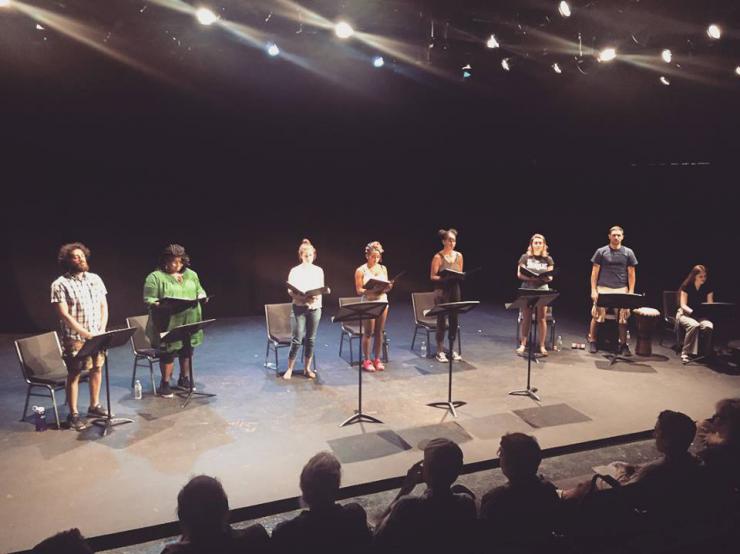
The word “resourcefulness” does not come to mind, but the word “resilience” does, as I thank the entire creative teams of the three readings and the production of Red Bike in person on this balmy night in Philadelphia and over the course of the following days too via email. A part of me doesn’t even know where these seven plays came from, except that I felt a deep need to write them and felt too that force that sometimes occurs in the writing process, if you are so lucky, that the work is taking you somewhere you have not been before.
But the thing is, maybe I have been here before. Maybe the ride of writing these plays has been building for a while inside of me and is only now manifesting itself.
Sometime around 2005 while I was a resident playwright at New Dramatists, I wrote a project statement for a proposed play entitled Field Stories (recordings from the field). At the time I was thinking about creating a map of sound, text, voices and song centered on the stories of fellow citizens that inhabit what some call in the “backroads and backyards” of America. The idea then was to return to a kind of writing for live performance that I had not done for a long time but was precisely the kind of writing where I feel the most at home, and what I mean by “home” is where the heartbeat of the work feels the most centered, strong, and potent.
As a child of immigrant, working-class parents, I am inevitably drawn perhaps to stories about the disenfranchised and disaffected in our political landscape. My imagination is a lighted by the hard poetry of the everyday and especially by the kind of poetry that sings its songs with exactly the kind of resilience and transcendence I witnessed on the stage of the Drake this June in Philadelphia.
As a child of immigrant, working-class parents, I am inevitably drawn perhaps to stories about the disenfranchised and disaffected in our political landscape.
When I was in graduate school, a question was posed to my class by our late mentor Adele Edling Shank. Instead of asking us how we identified as writers or as humans (and sometimes those identifications are different, actually), she asked us how we identified by class. While my fellow playwrights in the room had thus far been able to rattle off writing influences, ambitions, and the kinds of plays and musicals we loved with eager exuberance, the class question suddenly left us silent. Would voicing our status in this way mark us forever as a middle-class playwright or a lower-class playwright, etc.? There was also a tinge of shame attached to the silence. If each of us really said what our “station” was, would it create divisions amongst us?
I wrestled with the question mightily. I mean, here I was in southern California getting my MFA degree after four years of completing my undergraduate work at UNCC. I had traveled hundreds of miles and spent a good deal of precious few out-of-state tuition monies to try to make this crazy dream of training as a playwright possible. To all outward appearances, I was a middle-class individual. But my Argentine father, who had been a professional soccer player in South and Central America and Canada, had come to the US and had had to remake his life, and had worked in textile factories the whole of his second life. My Cuban mother had been a schoolteacher in Cuba and had married my dad when he was still a soccer player, and when they both came to the US, she too had to remake her life, working retail jobs and freelance jobs to make ends meet. So, although it seemed I was living a middle-class life, and by some measure I was, I was really a working-class kid.
I raised my hand and responded, “working class.” I was the only writer in the room that identified in this manner, and I could feel a slight bristling amongst my peers. Judgment? I wasn’t sure. But there was what I detected to be a rather dismissive vibe. “Working class” wasn’t a cool thing to say because it marked you a certain way. In what way exactly, I wasn’t so sure.
Naming the class to which I felt an affinity and of which I was also a part at first felt strange, but also empowering. Maybe the sense of a burden being lifted? Or maybe it reinforced my belief that the kinds of characters I tended to write in the plays of mine that were character-driven were in fact living in the wake of economic violence, and were sometimes so caught in it that they could not see a way forward or were so consumed by it that they enacted a similar, “pettier” verbal and sometimes physical violence against those in their midst. The act of naming also made me recognize that my characters need not be caught necessarily, that, in effect, they could rise above real and perceived class barriers, and still find their way, and that that “way” could be as unique and distinctive as they desired.
Finding and locating “home” as a writer, therefore, has as much to do with class as it does with all else that makes and has defined you. Your negotiation with definition(s) into which you have been born into or that have been applied to you by society is central to the kind of works you decide to make, and where you also place your field of vision. In theatre, we ask audiences to regard something or someone. “See this, look here” is our demand. Where we shine the light matters. Not in some holier-than-thou way, but rather it matters because we are inviting an audience to spend some time, and to then extend that time back into their lives after the play has ended. “See this, look here.” Not just during the play. But in your life.
* * *
Philosophically and theatrically, much of my body of work over the years has dedicated itself to intimate yet expansive gestures exploring imagined and real geographies of yearning—sites of play that move horizontally across many fields of emotion, location, spirituality, and hybrid linguistic registers. Shining a mytho-poetic light on underrepresented people, places, and things are the heart of my dramatic project. And I say “things” because I am interested in the “thing-ness” of theatre and performance as much as in its notions of “the body” (whose body/ies and why and how) and the oft-perceived mis-perception of “place” as fixed, when it is hardly ever so.
In the last two years, the political climate in the US has shifted radically. Indeed, the deeply polarizing ideological politics at civil war on our streets in bad decline (to paraphrase George Saunders) has been the stuff of the news, and much of the stuff circles round “forgotten” communities precisely living in rural and small towns. The angry, bitter, economically despairing sleeping giant bathed in shades of Republican red “created” and voted for President Trump, and how is it that the rest of the US “forgot” this giant existed?
When economic violence is acted upon our fellow citizens, is it not our duty to rise up?
At least this is the common mythology. Partly correct but also not so. Because big money also supported Trump’s de-facto rise, although talk of this rarely gets media-play. Shall we trace, for instance, the circuitous channels of vested influence championed and supported by the Wichita-based Koch Brothers corp.? As Randy Newman said in his song The beehive state, “What is Kansas thinking? What is Kansas for?”
Although laced with sardonic irony, Newman’s questions ring true, and as a text-builder and theatremaker, let me amplify Newman’s position to ask “What is our country thinking? What is it for?” and by extension as well, “What is or could our theatre (be) thinking?” (I owe a great debt here for this line of thinking to scholar Alan Read and his book Theatre, Intimacy & Engagement.)
American Psalm in its seven-play entirety, but also within each play, centers on these two latter questions. Whilst another cycle may emerge as a follow-up looking precisely at the Koch Brothers constituency, this one focuses squarely on working and transient class people, without overt red versus blue party labels attached.
Who is this so-called sleeping giant?
Who are and/or feel abandoned in this society built for profit and not care?
How indeed might we as fellow citizens sitting or standing in the town square of theatre bear witness to long-standing hurt, economic pain, atmospheres of despair (despite spirits of protest), and lives lived joyfully and heroically, too, amidst a spiritual void?
* * *
In loud, conflicted times, in what ways can we honor and respect spaces of quiet in our theatre and in our everyday life?
When economic violence is acted upon our fellow citizens, is it not our duty to rise up?
Making these secular hymns for chaotic times throughout this last year has felt as if I have been writing from the very center of something which as of yet does not have resolution (that is, although I am specifically locating the subject of my enquiry with these seven plays on a deliberate emotional map of the US, there may be a long-standing project at work here that goes beyond this cycle of writing).
Living in the thorny, complex now of the question of economic precarity and how it intersects with issues related to faith, gender, class, status, race, ethnicity, climate change, and civic life is one that asks me to re-consider the teleological demands and appeals of theatremaking in the first place—beyond buzz words around what may or may not be performance or what is deemed radical or transgressive (both of these words overused and in great regard, passé in the field).
Let us look instead, in this act of summoning which is the theatre event, toward a dialogue with what may be the weakest part of ourselves, the stuff we would rather not or cannot name, and, through this leap of faith and vulnerability, ask of each other what kind of world we could be thinking and living.

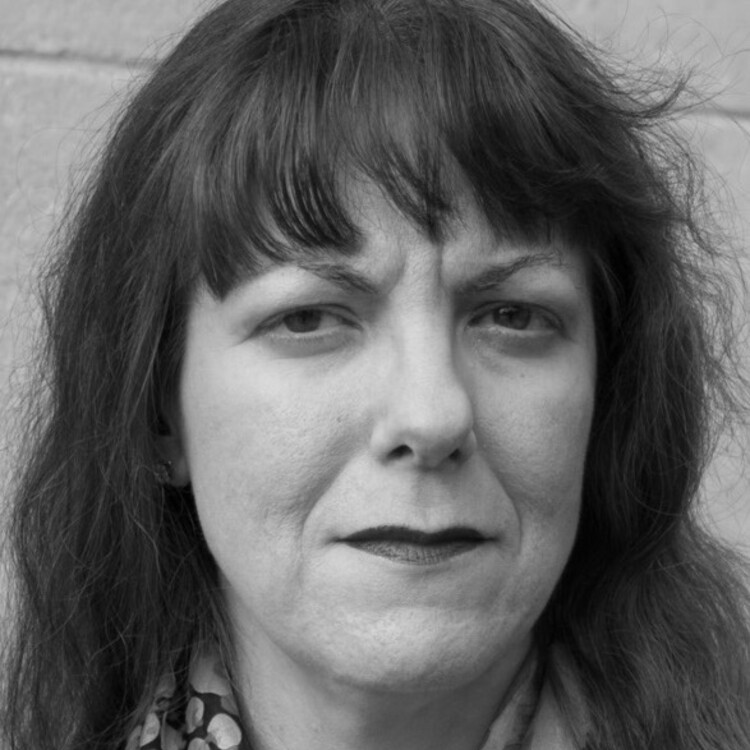
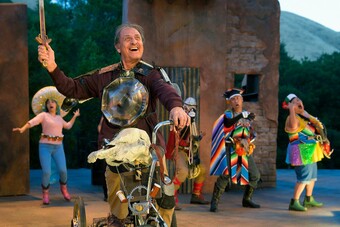






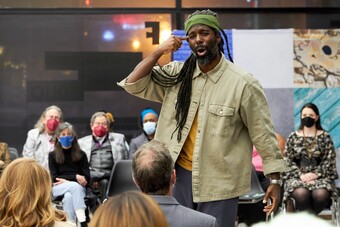




Comments
The article is just the start of the conversation—we want to know what you think about this subject, too! HowlRound is a space for knowledge-sharing, and we welcome spirited, thoughtful, and on-topic dialogue. Find our full comments policy here
Thank you, Caridad, for these thoughts. I often think about the assumptions and invisibility of class in our field and how much our material conditions affect out ability to risk, to continue, to seek training, to take residencies, etc. I appreciate you wading into these waters with vulnerability and openness and naming the thing.
Hmm. Too, I wonder, how little class consciousness exists in the US culture overall and the dearth of language for parsing access, class, socioeconomic conditions, and how all of these intersect with the rest of our lived, embodied experiences of our social locations (race, gender, et al). Really, when we speak of class in this culture, we're nearly incoherent, we're so confused. It follows that we, as artists, also lack the words.
FWIW, I've come to find the words for my own class identity: First-generation middle class (?) and most of the time not poor, but broke as hell.
Write code, not plays. People will pay you for writing code. The most brilliant people of our generation are pouring their creativity into applications and visionary technology.
Imagine a world where no plays were written. Were "Hamilton" was an app instead of a play. Where, instead of seeing Paula Vogel's "Indecent," we could play the "Sonic the Hedgehog" game Paula wrote.
If Shakespeare were alive today he would be writing software. Many writers are actually working in the computer game industry because computer games often tell a story. The bottom line is that the talent goes where the money and recognition are on offer. The theater community offers far too little because it does not value talent. When you don't value talent you don't get talent.
"When you don't value talent you don't get talent" is probably wrong. The better question might be "What kind of talent?" or "Talent what for?"
In the arts (as opposed to, say, business as such), "talent goes where the money and recognition are on offer" is never so clear.
Good point, rsrobbins. (in reference to writing code)